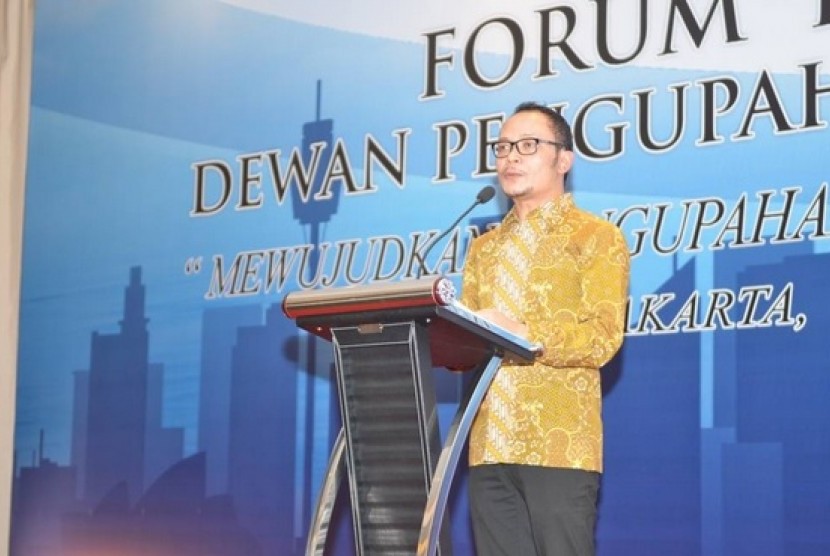REPUBLIKA.CO.ID, JAKARTA -- Manpower Minister M. Hanif Dhakiri has called on the people to be optimistic regarding the ASEAN Economic Community (AEC), expressing conviction that Indonesian workers have a huge opportunity to compete with expatriates from other countries.
"We have to face the AEC optimistically and believe that it is an opportunity for us to increase our competitiveness," the minister stated on Tuesday.
The implementation of the AEC since the end of 2015 permits the free flow of goods, services, and investment among the 10 ASEAN countries without any trade restrictions or barriers.
The 10 ASEAN countries are Brunei Darussalam, the Philippines, Indonesia, Cambodia, Laos, Malaysia, Myanmar, Singapore, Thailand, and Vietnam.
The AEC is being implemented based on the three pillars of politics and security; social and culture; and economy.
Minister Dhakiri affirmed that the people should not harbor insecurities regarding the presence of expatriates following the implementation of the AEC. Only those expatriates who are able to meet stringent requirements would be allowed to come to Indonesia. After all, not all job vacancies could be filled in by expatriates.
"Several people in the society are harboring wrong perceptions that the AEC easily opens up access to expatriates to enter Indonesia and to work in all sectors," remarked the minister.
Dhakiri stressed that the competence of Indonesian workers was not inferior to that of their foreign counterparts from other countries. However, he appealed to the Indonesian workers to continue improving their competence levels by, for instance, mastering foreign languages.
A legislator had noted last week that the government needed to forestall a surge in the number of foreign workers to ward off social problems in the country.
Chairman of Commission III of the Parliament Saleh Partaonan Daulay said the recruitment of expatriates at the expense of Indonesian workers would result in further worsening of the existing unemployment and social problems in the country.
"Unemployment means a gap in social welfare and poverty," Saleh affirmed, adding that the government would face a bigger problem of eradicating poverty.
The government, therefore, needs to seriously address the problem by creating more jobs and restricting the recruitment of foreign workers.
"The government has to come up with a breakthrough to improve the quality of Indonesian workers to be more competitive in the open market," he emphasized.
Saleh quoted figures at the Central Bureau of Statistics pointing out that until the end of February this year, 25,326 expatriates had already entered the country, increasing 69.3 percent from last year.
"This is an early negative impact of the AEC as Indonesian workers are less competitive as compared to the expatriates," he stated.
Agencies such as the Labor Ministry, the National Agency for Placement and Protection of Indonesian Workers Overseas (BNP2TKI), the Social Affairs Ministry, and the Agriculture Ministry should coordinate in taking the necessary steps, he emphasized.
Saleh said Indonesia should not become a passive market for other ASEAN member countries, adding that a country, with such a huge potential, should be more competitive.
Meanwhile, chairwoman of the Presidential Advisory Board Sri Adiningsih remarked that the government had constantly sought to improve the quality of the country's human resources to be more competitive in the free trade era of the AEC.
The AEC has opened up a huge opportunity for Indonesia to expand, but currently, the country is still in the middle in terms of the quality of its human resources, Sri stated at a function on "Moderation to Prevent Radicalism and Terrorism Toward Creating AEC" at an Islamic boarding school Al-Hikam in Depok on Tuesday.
"Indonesia is the leader in terms of population, but with regard to competitiveness and social welfare, we are still in the middle," she noted.
Indonesia lacks competitiveness as it is still lagging behind in the field of education, she added.
Sri remarked that only 40 percent of Indonesians had completed elementary school education, and in contrast, Singapore, which barely had natural resources, was highly competitive.


